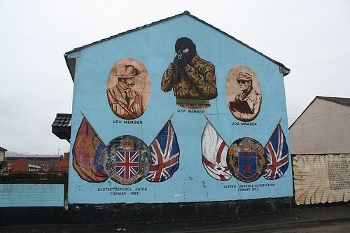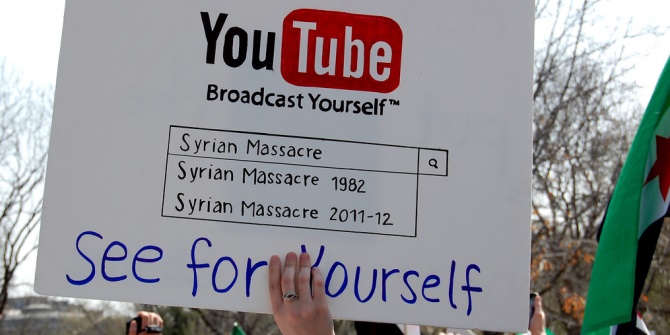 The global scourge of terrorism has been arguably the most pressing issue on the agenda of the international community in the 21st century. Britain has been inextricably linked with many of the key developments, from the wars in Afghanistan and Iraq, to the 7/7 bombings and debates over detention orders and the use of torture in interrogations. In this blog post, Professor Richard English draws on some of the earlier experiences of Britain facing a problem of political violence in Northern Ireland and suggests certain principles that should inform appropriate counter-terrorism policy.
The global scourge of terrorism has been arguably the most pressing issue on the agenda of the international community in the 21st century. Britain has been inextricably linked with many of the key developments, from the wars in Afghanistan and Iraq, to the 7/7 bombings and debates over detention orders and the use of torture in interrogations. In this blog post, Professor Richard English draws on some of the earlier experiences of Britain facing a problem of political violence in Northern Ireland and suggests certain principles that should inform appropriate counter-terrorism policy.
There are no easy lessons to draw from the Northern Ireland conflict. Nor should it be thought that, just because things happened in one way in Northern Ireland, they will necessarily follow suit in conflicts elsewhere. But there are aspects of what happened in the Northern Ireland conflict which might share sufficient family resemblances with experience in other settings, to allow us to suggest some elements of responses to terrorism which are wiser than others.
Here, I’ll mention seven.
First, terrorism is unlikely to be utterly eradicated, even if peace processes go well. Terrorist violence in Northern Ireland long pre-dated the onset of the 1960s Troubles, and it has remained extant, at much lower levels, in the period since the 1998 Good Friday Agreement. Learning to live with some violence, and containing rather than eradicating it altogether, seem appropriate responses.
Second, we should avoid an over-militarization of the response to terrorism. Ex-IRA members whom I have interviewed again and again stressed that the British Army’s heavy-handedness in the early 1970s in Northern Ireland made recruitment to the Provisional IRA much easier, and IRA popularity much greater. It is not that there is no role for military elements in a response; but those elements should be restrained as far as possible.
Third, high-grade intelligence, and the proper analysis of such data, should embody the primary mechanism for containing terrorist groups. By the end of the Northern Ireland Troubles, the police and security service were far more adept at penetrating terrorist organizations than had been the case at the onset of the conflict, and the levels of violence were lowered as a consequence.
Fourth, where possible address the root causes of the violence. This is not to say that states should give terrorist groups what they want. It is to say that there are occasions – as in Northern Ireland during the 1990s – when you can give enough to satisfy most of a terrorist group’s constituency, short of what the terrorists themselves ostensibly wanted; and that you can reduce violence as a result.

Fifth, respect orthodox legal frameworks and adhere to the democratically established rule of law. It is tempting to abandon legal restraint in the face of appalling terrorist violence. But such transgressions more commonly work to terrorists’ advantage than to the state’s, as was true in Northern Ireland and has been true post-9/11 in the wider international setting.
Sixth, maintain strong credibility in public response to terrorism and in public argument about it. Repeated efforts by the UK government to present terrorism in Northern Ireland as less political, and more purely criminal, than it was, did little to help the state defeat terrorism. And there is no need to misrepresent terrorist motivation or politics: the state’s arguments and diagnoses will often enough be sufficiently strong to win the argument if made honestly, credibly and patiently.
Seventh, ensure coordination of all counter-terrorist efforts across different wings of the state, and between different states cooperating in fighting the same opponent. Relations between various UK police forces, the army, and MI5 were, by the end of the Troubles, much better than they had been earlier on. And relations between the UK and the Republic of Ireland were crucial in helping to contain terrorist violence.
This does not provide a neat template to be applied everywhere that political violence emerges. It does attempt to draw on Northern Irish experience as it resonates with experience in many other conflict zones and to provide a basis for some fruitful reflection, debate and (dis)agreement.
This post was based upon a talk given at the LSE on Monday 23rd May 2011 as part of a discussion on The Lessons of Northern Ireland for Contemporary Counterterrorism and Conflict Resolution Policy. Follow the hyperlink to access a podcast of the event.
Please read our comments policy before commenting.






1 Comments